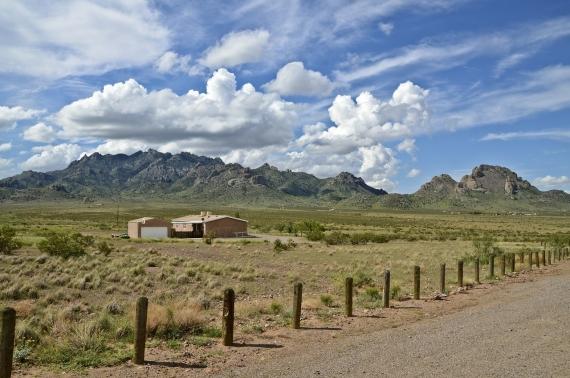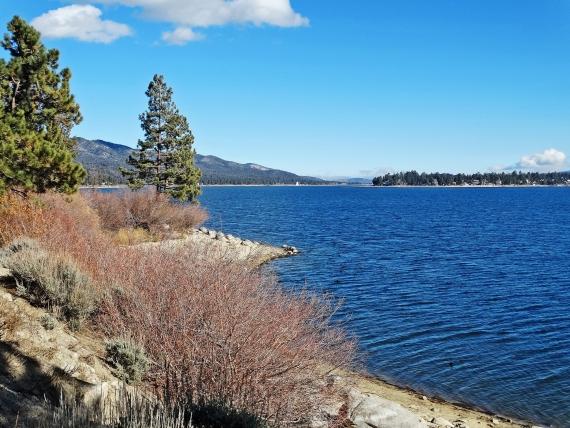Posted: November 18, 2015 by LandCentury

So, you want to buy farmland or land for cropping purposes, and you dont know where to start. Youll find that there are large lots of land perfect for farming in virtually every state in the country. Of course, youll want to avoid places that are more arid and dry, such is New Mexico or even West Texas where your crop varieties are limited. But there are several other considerations when purchasing land for cropping purposes.
If you want to grow an own organic garden, you can do so if you follow these tips to help you get started.
Land Concerns and Considerations
First and foremost, you must evaluate the land. This doesnt mean buying the biggest lot of land and hoping that you can farm on it. In fact, a smaller lot of land may be more beneficial in terms of cropping than a large lot if the following factors are not in place:
* Water is essential if you want to grow any crop. Youll need to know if there's enough water on the land, and if the water is clean. Youll also need to know if water is running to the land or if there are any utilities on the land itself. If you need to run water, youll need to ensure that you have proper access to the land as well as budget for water lines to be ran to the house.
* Soil condition is one of the most important areas of owning farmland. Even if you're a small-scale grower for your own family, the quality of the soil has a major impact on your crop growth. If the soil is poor quality, youll need to spend money to bring the soil up to an acceptable rate to grow crops. We'll be talking about this more in depth shortly.
* Water drainage is a major concern because you need to know that even during a severe rainstorm, your crops are not at risk of being washed away due to a lack of proper drainage.
These are the most important factors when buying land for cropping purposes. I want to go more in depth about water and the quality of the soil so that you know exactly what type of land to buy.
Water Is a Necessity
Your state's Department of Health or Natural Resources will be your go-to contact when trying to learn about the water in the area. The state will discuss with you the following:
* How to take water samples and get the water tested.
* The type of well, age and death of the unit (where applicable).
* Possibility of running water to the area if needed.
* Water rights on the property that you purchase.
Its also a good idea to have a water sample taken so that you know that the water is not contaminated, or that there is not a problem with the water when trying to grow crops. You can also have an inspector come out to determine the drainage on the property. Every property can have drainage installed, but youll want to know how much this will cost you to ensure that your investment is safe.
Soil Quality
When youre planting crops, there are a variety of problems that can occur. Crop disease is a big issue that can be caused by several issues, including:
* Soil pH levels
* Crusting
* Compaction
* Drainage issues
* Lack of soil life and salinity
* Erosion
These are issues that can be rectified in most cases, but there will always be a cost involved. For example, poor quality soil may lack nutrients which is needed for proper growth. As a result, you may plant crops, but they will either grow slower, or not at all. Your best solution would be to add nutrients into the soil to bring its quality back to a premium, or good level. While this is the ideal solution, it can be costly depending on what problems there are with the soil.
Making matters worse, soil quality is not something that most people understand or know about. For best results, youll need to have a soil sample taken. This will determine the current condition of the soil. This test should always be taken prior to making your purchase or even coming to a verbal agreement with the property owner to purchase the land.
Crop Growing Possibilities
Every region of the country has a slightly different climate. You may be able to grow oranges in Florida, but you might not be able to grow other crops in the state if youre in the southern portion. This is a major concern if your goal is to plant a certain crop to grow and possibly sell. You need to know which crops are local to the area and can grow adequately.
There should also be a plan for the different seasons of the year. During the winter months, youll have to change your growing plans because most crops will not grow. Kale may thrive in cold conditions, but apples or oranges will not fare well if it snows outside or dips below freezing temperatures. Always research and determine which crops can be grown in the area. This is a large undertaking even for a family grower that is keeping the crops just for themselves. The actual type of soil will also have an impact on your growing capabilities. If the land has clay soil, it will be much harder to grow items than other soil types.
If you're choosing to buy great value farm land as an investment and want to use it for cropping purposes, its always a good idea to discuss your options with a farmer or a local authority that knows about different land types, soil issues and water issues. This is the best avenue, even if you have to spend a little bit more money, so that you keep your investment safe by knowing that the land is actually workable and will be able to be used for your purposes.
If you want to grow an own organic garden, you can do so if you follow these tips to help you get started.
Land Concerns and Considerations
First and foremost, you must evaluate the land. This doesnt mean buying the biggest lot of land and hoping that you can farm on it. In fact, a smaller lot of land may be more beneficial in terms of cropping than a large lot if the following factors are not in place:
* Water is essential if you want to grow any crop. Youll need to know if there's enough water on the land, and if the water is clean. Youll also need to know if water is running to the land or if there are any utilities on the land itself. If you need to run water, youll need to ensure that you have proper access to the land as well as budget for water lines to be ran to the house.
* Soil condition is one of the most important areas of owning farmland. Even if you're a small-scale grower for your own family, the quality of the soil has a major impact on your crop growth. If the soil is poor quality, youll need to spend money to bring the soil up to an acceptable rate to grow crops. We'll be talking about this more in depth shortly.
* Water drainage is a major concern because you need to know that even during a severe rainstorm, your crops are not at risk of being washed away due to a lack of proper drainage.
These are the most important factors when buying land for cropping purposes. I want to go more in depth about water and the quality of the soil so that you know exactly what type of land to buy.
Water Is a Necessity
Your state's Department of Health or Natural Resources will be your go-to contact when trying to learn about the water in the area. The state will discuss with you the following:
* How to take water samples and get the water tested.
* The type of well, age and death of the unit (where applicable).
* Possibility of running water to the area if needed.
* Water rights on the property that you purchase.
Its also a good idea to have a water sample taken so that you know that the water is not contaminated, or that there is not a problem with the water when trying to grow crops. You can also have an inspector come out to determine the drainage on the property. Every property can have drainage installed, but youll want to know how much this will cost you to ensure that your investment is safe.
Soil Quality
When youre planting crops, there are a variety of problems that can occur. Crop disease is a big issue that can be caused by several issues, including:
* Soil pH levels
* Crusting
* Compaction
* Drainage issues
* Lack of soil life and salinity
* Erosion
These are issues that can be rectified in most cases, but there will always be a cost involved. For example, poor quality soil may lack nutrients which is needed for proper growth. As a result, you may plant crops, but they will either grow slower, or not at all. Your best solution would be to add nutrients into the soil to bring its quality back to a premium, or good level. While this is the ideal solution, it can be costly depending on what problems there are with the soil.
Making matters worse, soil quality is not something that most people understand or know about. For best results, youll need to have a soil sample taken. This will determine the current condition of the soil. This test should always be taken prior to making your purchase or even coming to a verbal agreement with the property owner to purchase the land.
Crop Growing Possibilities
Every region of the country has a slightly different climate. You may be able to grow oranges in Florida, but you might not be able to grow other crops in the state if youre in the southern portion. This is a major concern if your goal is to plant a certain crop to grow and possibly sell. You need to know which crops are local to the area and can grow adequately.
There should also be a plan for the different seasons of the year. During the winter months, youll have to change your growing plans because most crops will not grow. Kale may thrive in cold conditions, but apples or oranges will not fare well if it snows outside or dips below freezing temperatures. Always research and determine which crops can be grown in the area. This is a large undertaking even for a family grower that is keeping the crops just for themselves. The actual type of soil will also have an impact on your growing capabilities. If the land has clay soil, it will be much harder to grow items than other soil types.
If you're choosing to buy great value farm land as an investment and want to use it for cropping purposes, its always a good idea to discuss your options with a farmer or a local authority that knows about different land types, soil issues and water issues. This is the best avenue, even if you have to spend a little bit more money, so that you keep your investment safe by knowing that the land is actually workable and will be able to be used for your purposes.




